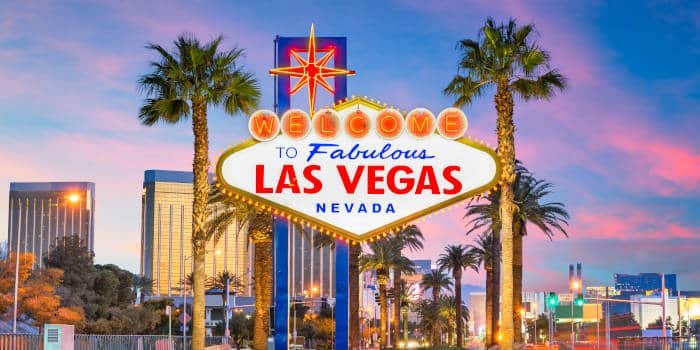UPDATE: Las Vegas is facing an alarming 11.3% drop in visitor numbers, with only 3.1 million people coming to the city in June 2025, according to the Las Vegas Convention and Visitors Authority (LVCVA). This steep decline is raising urgent concerns among hotels and casinos as younger generations increasingly opt for online gambling over traditional casino experiences.
Authorities report that the US online gambling market reached a staggering $12.68 billion in 2024, underscoring a dramatic shift in how young gamblers engage with betting. Robby Starbuck, a conservative commentator, shared with Fox News Digital that Las Vegas’s outdated image—centered around slot machines, showgirls, and heavy drinking—is failing to resonate with a generation that prioritizes digital experiences and wellness.
As young adults embrace healthier lifestyles, drinking habits are also changing. A recent Gallup poll revealed that 38% of adults under 35 abstain from alcohol entirely, representing a significant departure from the drinking culture that once defined Las Vegas. The traditional allure of the Strip is diminishing as social interactions shift online, diminishing the demand for in-person entertainment.
Hotels in Las Vegas are feeling the impact, with average nightly rates dropping to $163.64, reflecting a 6.6% decrease in pricing. Meanwhile, occupancy rates have fallen by 6.5%, leaving new developments stalled. A planned 43-story resort on the Strip remains an empty parking lot, with no immediate plans for construction.
Starbuck warns that if Las Vegas does not evolve its image to attract families and younger visitors, it risks becoming irrelevant. The city’s dependency on its historical appeal may not be enough to sustain its tourism-driven economy. As Las Vegas invests heavily in ambitious projects like The Sphere and major sports events, the urgency to adapt to the preferences of younger audiences has never been more critical.
Looking ahead, industry experts suggest that Las Vegas must innovate to remain competitive. The city needs to create attractions that align with the interests of a digital-savvy generation, or it risks fading into obscurity. With changing attitudes toward entertainment and socialization, Las Vegas faces a pivotal moment in redefining its future.
Stay tuned as we continue to monitor this unfolding situation and its implications for the iconic city.
